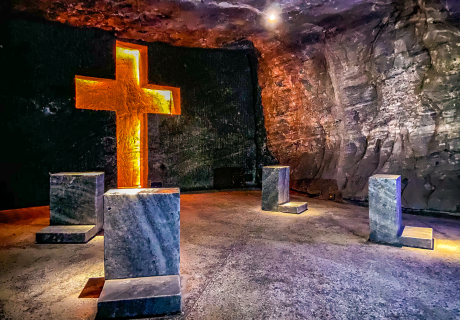Church attendance and identification with the Christian faith have been gradually declining in Australia for as long as I have been leading Bayside Church. When I was tidying up my office recently, I came across a newspaper clipping from the early nineties noting the decreasing interest in church among Australians. While our church defied that trend for many years, the overall decline has continued until recently.
Changing trends
The last census revealed that only 43.9 per cent of Australians identified as Christians, while the “no religion” group had increased to 38.9 per cent. In comparison, the 1971 census data showed that 86.2 per cent of Australians identified as Christian, with just 6.7 per cent choosing “no religion” as their belief.
However, the trend may be shifting. According to a recent article published by The Lowy Institute, ‘The global resurgence of religion among young people (especially young men) stands as one of the great puzzles of our era, defying two long-held sociological iron laws: faith is for the old, and for women.’ This change offers a glimmer of hope for the future of our church communities.
The trend reminds me of the Jesus People movement of the late sixties and seventies, when hundreds of thousands of young people came to faith in Christ. I was part of that movement in the late seventies, even though I was unaware of it at the time—many of my friends were too.
Dr. Intifar Chowdhury, a youth researcher and Lecturer in Government at Flinders University in South Australia, says, “If the future belongs to the young, and the young are turning to God, the political map of tomorrow may look far less secular than was once thought to be inevitable.”
Gender differences
In Australia, young Gen Z men now identify as Christian at higher rates than women. However, they are not always attracted to healthy communities but rather to churches that operate as male-led hierarchies. These churches promote distinct male and female roles and preach about Biblical manhood, appealing to an ultra-masculine understanding of what it means to be a Christian. While this attracts some men, it can also alienate those who do not fit the typical macho image.
These churches are discouraging young women, who are more likely to reject faiths promoting male headship. The result is a growing gender gap in religion that reflects the broader cultural and political divide. Churches and Christian leaders should convey the gospel message with the understanding that all people are created in God’s image and are equally deserving of respect, dignity, and love, regardless of their gender or sexuality.
How church helps
Academics suggest that religion can help people overcome social isolation and provide answers to life’s big questions. Faith can help you find purpose in life, provide comfort during difficult times, and offer hope for the future.
A healthy church is a wonderful community to join. I emphasise the word healthy because harmful churches can cause pain, manipulate members, and discriminate against minorities. If you belong to a religious community where you feel unsafe, I encourage you to move on as soon as you can.
A good church supports your spiritual growth, fosters community and belonging, assists you through life’s challenges, offers service opportunities, provides moral and ethical guidance, helps you celebrate life events like weddings, baptisms, child dedications, and funerals in a spiritual setting, and gives hope and an eternal perspective. A church is more than just a building—it’s a community where faith develops, people are cared for, and God is glorified.
You can make friends with people you wouldn’t meet otherwise. That’s one of the things I love about the church in general and Bayside Church in particular. I get to meet people I wouldn’t have normally met. My life is richer for the experience, as these people consistently offer me a different perspective on life outside my bubble — and we all need to acknowledge that we live in a bubble. The diversity of perspectives and experiences within our church communities can promote personal growth and learning.
How scripture helps
The American Bible Society recently reported a 29% rise in Bible use among Millennials over the past year, with scripture engagement also increasing among Gen Z.
The Australian Bible Society notes that Gen Z, the first generation to grow up with smartphones and tablets, is the most anxious and fearful of any age. But young adults who frequently engage with the Bible—reading it regularly and applying it to their lives—experience half the anxiety of their peers.
Engaging with Scripture can be a transformative experience, enhancing emotional and mental well-being. It encourages self-acceptance, self-esteem, peer support, and hope. The Bible provides spiritual growth, guidance, wisdom, renewal, comfort, encouragement, and strength for life. It’s an extraordinary book, and I encourage you to engage with it—read, study, meditate, and journal.
Help for everyone
Challenges are a universal part of life. Whether it’s grief and loss, bullying, family stress, trauma, discrimination, financial hardship, or global issues that cause us deep distress, we all face tough times. Some people face these things alone, and that’s when a strong faith in God, a supportive church, and the Bible become especially important.
I’ve been involved in church leadership for 40 years and have often seen the incredible support people get from their Christian community. Friends come together for those in hardship, offering practical care, prayer, a hug, or a shoulder to lean on. The Scriptures offer immense encouragement, fostering trust and prayer, along with helpful advice, reminding us that God loves and cares for us. This reassurance from Scripture can be a source of comfort and guidance during our most challenging times.
Diana Chandler, senior writer with Baptist Press, asks, “So, do people who engage with Scripture report less anxiety? Yes, and the difference is stunning.”





